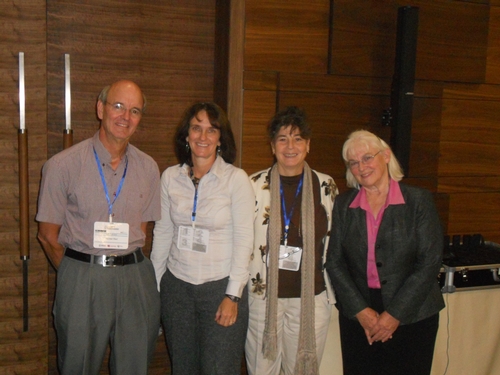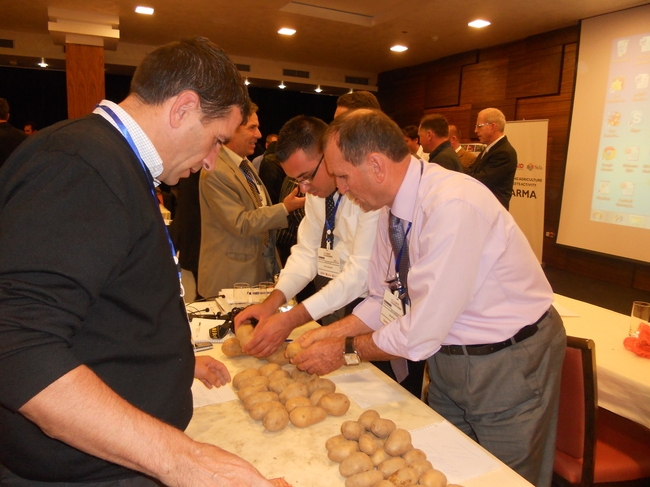Nov 3, 2011

UC Davis Postharvest Technology Center instructors to the Balkans Regional Postharvest Technology training (L-R) Drs. Michael Reid, Elizabeth Mitcham, Mary Lu Arpaia, Marita Cantwell.

Participants rated produce items using a variety of quality measuring instruments and scales.
Beth Mitcham, Director of the Postharvest Technology Center said, “We were impressed by the attentiveness of the audience despite the language challenges and 10-hours a day in class. They were very appreciative of the opportunity to learn from us information that had seemed inaccessible to them in the past.”
Michael Reid agreed, saying, “We had lots of good questions and comments. Based on our 'snapshot of the country and the industry' there's a lot of room for improvement in postharvest handling of horticultural crops. There is obvious potential for increasing product diversity and import replacement as well as for exporting high value horticultural crops to the EU and to Russia, if the postharvest handling systems can be put in place. Following the course I had the opportunity to travel to Dubrovnik and saw quite a bit of greenhouse production of salad vegetables and field production of citrus and other crops on the coastal plain."
It was assumed initially that interest in this postharvest training opportunity would be modest, but as word got around of this unique opportunity, registrations greatly exceeded initial expectations. Interest in the training was so intense that radio and television crews conducted interviews with the instructors. Participants represented the countries of Albania, Azerbaijan, Bosnia and Herzegovina, Georgia, Kosovo, Macedonia, Moldova, Montenegro, Serbia, and Ukraine.
Topics: